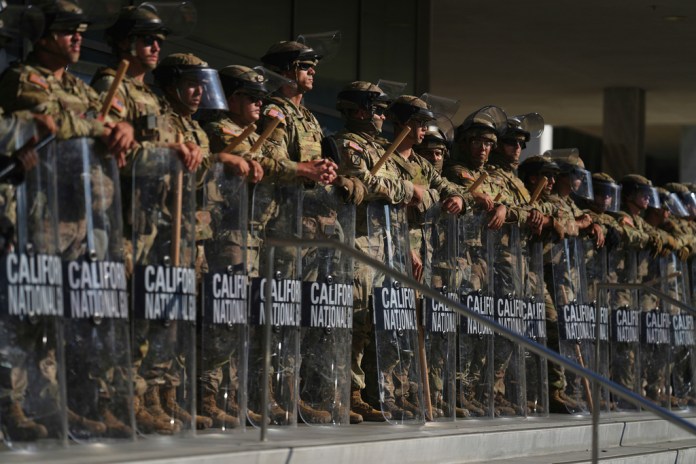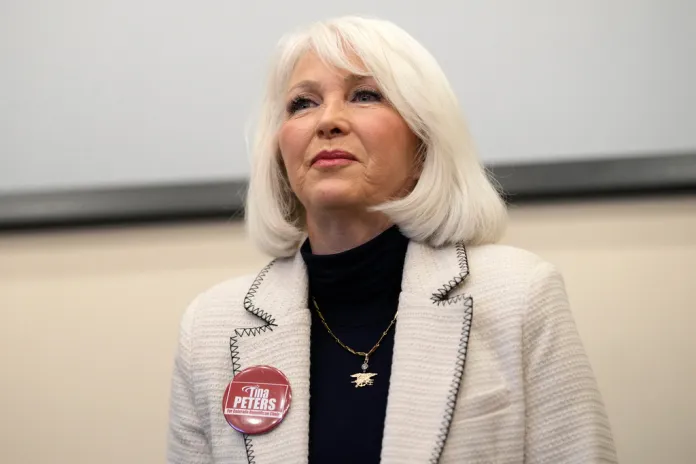Top Dem adviser says Trump trade war worse than Harris price gouging ban – Washington Examiner
A leading Democratic adviser and economist, Jason Furman, has expressed concerns regarding former President Donald Trump’s aggressive tariff policies, stating they are more troubling than Vice President Kamala Harris’s proposed measures against price gouging. Furman emphasized that while he criticized Harris’s plan, which he believes lacks effectiveness and is unlikely to pass the Senate, the potential consequences of a global trade war initiated by Trump are far more significant.
In a recent op-ed, Furman, who chaired the Council of Economic Advisers under President Barack Obama, detailed how Trump’s proposed tariffs could drastically reshape international trade relationships and impact consumer prices, labeling them a serious economic threat. He argued that Harris’s fiscal policies, even if contested, would be less damaging compared to the expansive budget proposals from Trump, which could significantly increase the national deficit.
Additionally, Furman raised concerns about Trump’s past criticisms of the Federal Reserve and indicated that a second Trump administration might pose risks to the central bank’s independence. As the economy emerges as a crucial issue for voters amid ongoing inflation challenges, Furman concludes that Harris represents a more stable choice for economic policy compared to Trump.
Top Democratic adviser says Trump trade war worse than ‘bad’ Harris price gouging ban
A leading Democratic adviser and top economist is arguing that, while he isn’t a fan of Vice President Kamala Harris’s plan to go after price gouging, former President Donald Trump’s tariff agenda is more concerning.
Jason Furman, the chairman of former President Barack Obama’s Council of Economic Advisers, told the Washington Examiner on Tuesday that even though he has harshly criticized Harris’s price-gouging proposal, he views Trump’s push to apply tariffs aggressively is a bigger deal when the consequences of the two proposals and likelihood they would happen are taken into consideration.
“The price gouging proposal won’t pass the Senate and regardless even if it did, the more limited versions that mimic state law would be only a mild bad but not terrible,” he said in an email. “All that pales in comparison to a global trade war.”
Furman explained his stance after publishing an op-ed in the Wall Street Journal arguing that Harris is the safer pick for the economy.
Furman, who is an economic policy professor at Harvard University, has criticized Harris’s price-gouging plan as “not sensible policy” and said that it has no upside to it — noteworthy pushback from a member of the same party.
Yet Furman objects to Trump’s proposed trade policy, which would dramatically rework the global trade order by imposing stiff tariffs on adversaries and allies alike. President Joe Biden maintained Trump’s tariffs against China, which Furman contends was a bad move.
“Fortunately Ms. Harris doesn’t seem enthusiastic about pursuing this route much further,” Furman wrote in the op-ed. “Mr. Trump, meanwhile, has proposed 10% tariffs on all U.S. imports, as well as 60% on Chinese goods. Whereas President Biden’s tariffs covered $18 billion of imports, Mr. Trump’s would cover $4 trillion, more than 200 times as much.”
During the debate, Harris attacked Trump over his ambitious tariff agenda. Most economists agree that tariffs are ultimately passed along to consumers through higher prices. She and critics of the plan argue that across-the-board tariffs would amount to a sales tax for voters.
In his op-ed, Furman also examined the budgetary and fiscal effects of the two candidates’ economic platforms.
Furman said that, by his estimation, Trump’s combination of budget proposals, such as extending his namesake tax cuts, lowering the headline corporate tax rate, and eliminating taxes on both Social Security and taxes on tips, would add more than $5 trillion to the deficit. That figure accounts for any new revenue brought in from a juiced-up tariff regime.
He assessed that Trump’s deficit increases are more likely to happen than Harris’s and noted that political betting markets imply that if the former president wins, it is likely that Republicans would also have a trifecta of control in the House, the Senate, and the White House, “a combination that typically results in substantial tax cuts.”
But if Harris wins, it is likely that she would not have a trifecta and would have only tenuous control of the Senate.
“Even with unified Democratic control, there is more precedent for deficit reduction and paying for proposals, outside major recessions and emergencies,” he said.
Furman also has trepidations with how a second Trump administration would handle the Federal Reserve and its independence.
Trump appointed Jerome Powell as the Fed chairman for a first term that began in 2018. Powell was then subsequently reappointed by President Joe Biden in 2022 — to grumbling from the liberal-left flank of the Democratic Party. Trump famously criticized Powell while in office, pressing him to lower interest rates in defiance of the convention for presidents not to intervene in monetary policy decisions by the central bank.
Furman conceded that Trump’s picks to govern the central bank during his first term “were generally excellent,” with some outliers near the end of his term.
“Yet he often fiercely criticized the central bank,” Furman wrote. “He is now arguing that the president should have a say in setting interest rates, and at least one of Mr. Trump’s top advisers has suggested he would fire Mr. Powell in the first 100 days.”
Furman said that Trump would probably move away from the notion of directly intervening with the Fed, given the stock market’s inevitably negative response, but if he doesn’t back away from those ideas, they would represent “perhaps the largest threat the economy faces.”
During this election cycle, the economy has been the No. 1 issue for voters. Much of that discontent stems from more than three years of cumulative inflation, which has marred the Biden administration’s approval ratings despite some of the lowest unemployment in modern history.
Consumer price index inflation faced a 0.4 percentage point drop to 2.5% for the year in August, the Bureau of Labor Statistics reported last week, marking five months of disinflation and a bit of good news for Harris. CPI inflation is now the lowest it has been since February 2021, shortly after President Joe Biden was sworn in.
But despite the progress the Fed has made in lowering inflation, voters aren’t complaining about the 2.5% inflation experienced over the past year but rather that, on average, things cost about 20% more now than they did when Biden first entered office.
The Fed’s quest to vanquish inflation by driving up interest rates has also made things such as taking on a mortgage and getting an auto loan much more expensive, causing further economic discontent.
The central bank is meeting this week, and it is widely expected to cut interest rates for the first time since the start of the pandemic back in 2020. Investors and Fed watchers are split over how much they think the Fed might cut, with some guessing the Federal Open Market Committee will slash rates by a quarter of a point and others anticipating a bigger 0.5-point cut.
" Conservative News Daily does not always share or support the views and opinions expressed here; they are just those of the writer."




